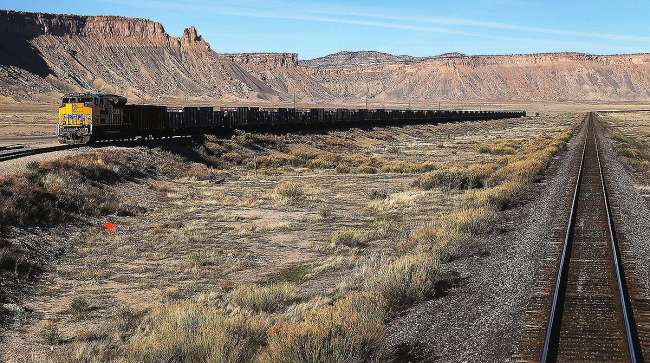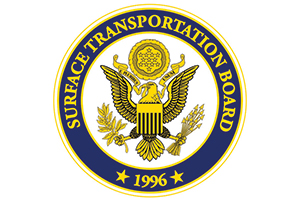Senior Reporter
Surface Transportation Board Calls for Stakeholder Comments on Rail Carriers’ Invoices

[Stay on top of transportation news: Get TTNews in your inbox.]
A federal transportation agency is requesting comments on a proposal to include additional information with rail carriers’ invoices.
In a supplemental notice of proposed rulemaking announced this month, the Surface Transportation Board intends to include details meant to enhance the movement of freight along railroads.
The proposed additions include adding to demurrage invoices the date range covered, such as a billing cycle. Also, adding the original estimated date and time of arrival and the date and time cars are received at interchange, according to a notice in the Federal Register published May 6. The proposal also calls for adding the ordered-in date and time, and machine-readable data.
STB-2020-09682 by Transport Topics on Scribd
The board is asking stakeholders to issue comments by June 5. The deadline to reply to comments is July 6.
“Machine-readable invoicing may be one way to make the process of verifying demurrage charges less burdensome for invoice recipients and thereby further the board’s objective to make demurrage invoices more transparent and information related to demurrage charges more accessible,” according to the notice in the Federal Register.
The notice went on, “As some advocates note, electronic auditing may involve coding and require upfront costs, and the board expects that some smaller rail users would not have the resources to use machine-readable data.”

Demurrage is a charge railroads assess customers for detaining railcars. It is meant to promote efficiency.
Additionally, the board announced April 30 it intends to facilitate negotiations as well as resolve disputes between rail carriers and shippers and receivers. Also, the board is requiring freight railroads to bill a shipper directly for demurrage when the shipper and warehousemen agree to such an arrangement, and notify the carrier. The board indicated its intention is to ensure the responsibility for demurrage is placed on the party best capable of expediting the loading or unloading of railcars.
“Transparency, timeliness and mutual accountability by both rail carriers and the shippers and receivers they serve are important factors in the establishment and administration of reasonable demurrage and accessorial rules and charges,” according to a separate notice in the Federal Register.
The policies are effective May 30. “Just as this policy statement recognizes that there may be different ways to implement and administer reasonable rules and charges, carriers are encouraged to recognize the importance of working with rail users to develop reasonable solutions to unique situations those shippers and receivers may face.”

Host Seth Clevenger speaks with Mike Perkins and Derrick Loo, test drivers at Peloton Technology, one of the companies at the forefront of developing truck platooning systems. Hear a snippet, above, and get the full program by going to RoadSigns.TTNews.com.
The announcement issued last month was the result of the board’s examination of concerns raised by stakeholders about demurrage invoices and accessorial charges. Stakeholders, such as the American Chemistry Council, noted the announcement outlined the appropriate use of such charges.
“We commend the board for carefully considering everyone’s input and taking action on an issue that has harmed many manufacturers across the country. Demurrage charges are supposed to create incentives to keep the rail network running efficiently, not create a new profit center for the railroads,” said American Chemistry Council President and CEO Chris Jahn on May 4. “In its new policy statement, the board has sent a strong message that rail carriers may not simply use demurrage charges as another revenue stream.”
Resolving service and rate disputes across the freight rail industry is the task of the five-member governing board.
Want more news? Listen to today's daily briefing:


